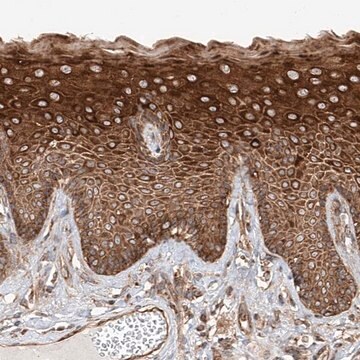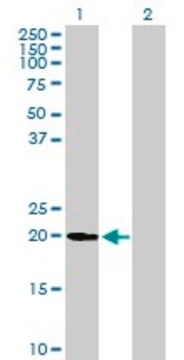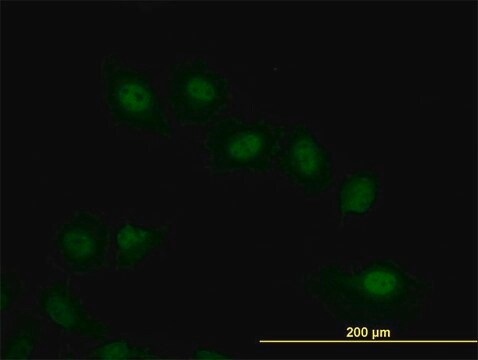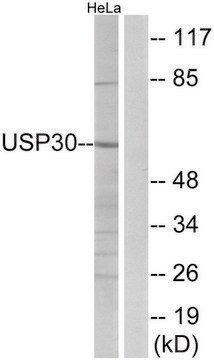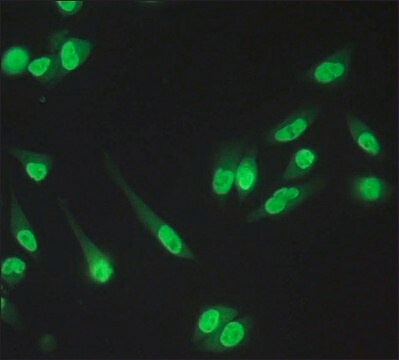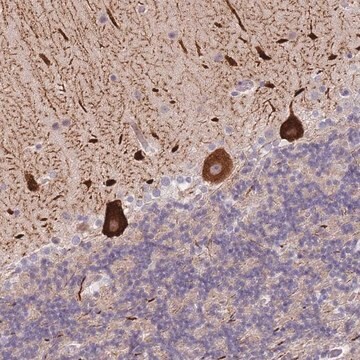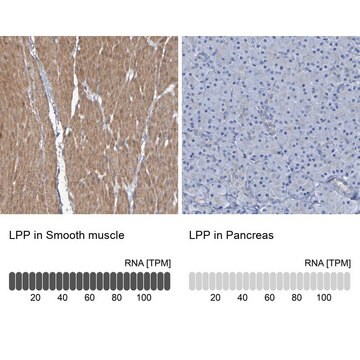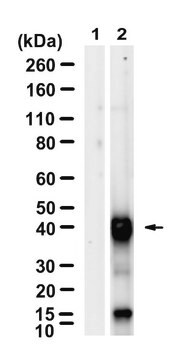WH0008493M1
Monoclonal Anti-PPM1D antibody produced in mouse
clone 4D1, purified immunoglobulin, buffered aqueous solution
Synonim(y):
Anti-PP2CDELTA, Anti-WIP1, Anti-protein phosphatase 1D magnesium-dependent, delta isoform
About This Item
Polecane produkty
pochodzenie biologiczne
mouse
białko sprzężone
unconjugated
forma przeciwciała
purified immunoglobulin
rodzaj przeciwciała
primary antibodies
klon
4D1, monoclonal
Postać
buffered aqueous solution
reaktywność gatunkowa
human
metody
indirect ELISA: suitable
western blot: 1-5 μg/mL
izotyp
IgG1κ
numer dostępu GenBank
numer dostępu UniProt
Warunki transportu
dry ice
temp. przechowywania
−20°C
informacje o genach
human ... PPM1D(8493)
Opis ogólny
Immunogen
Sequence
IGLVPTNSTNTVMDQKNLKMSTPGQMKAQEIERTPPTNFKRTLEESNSGPLMKKHRRNGLSRSSGAQPASLPTTSQRKNSVKLTMRRRLRGQKKIGNPLLHQHRKTVCVC
Postać fizyczna
Informacje prawne
Oświadczenie o zrzeczeniu się odpowiedzialności
Nie możesz znaleźć właściwego produktu?
Wypróbuj nasz Narzędzie selektora produktów.
Kod klasy składowania
10 - Combustible liquids
Temperatura zapłonu (°F)
Not applicable
Temperatura zapłonu (°C)
Not applicable
Środki ochrony indywidualnej
Eyeshields, Gloves, multi-purpose combination respirator cartridge (US)
Certyfikaty analizy (CoA)
Poszukaj Certyfikaty analizy (CoA), wpisując numer partii/serii produktów. Numery serii i partii można znaleźć na etykiecie produktu po słowach „seria” lub „partia”.
Masz już ten produkt?
Dokumenty związane z niedawno zakupionymi produktami zostały zamieszczone w Bibliotece dokumentów.
Nasz zespół naukowców ma doświadczenie we wszystkich obszarach badań, w tym w naukach przyrodniczych, materiałoznawstwie, syntezie chemicznej, chromatografii, analityce i wielu innych dziedzinach.
Skontaktuj się z zespołem ds. pomocy technicznej
